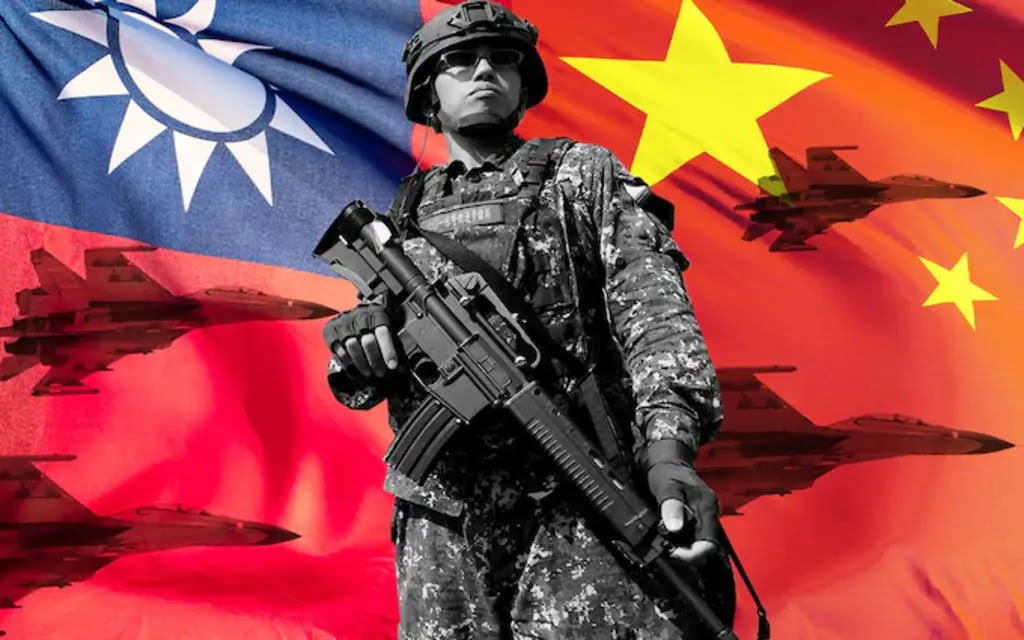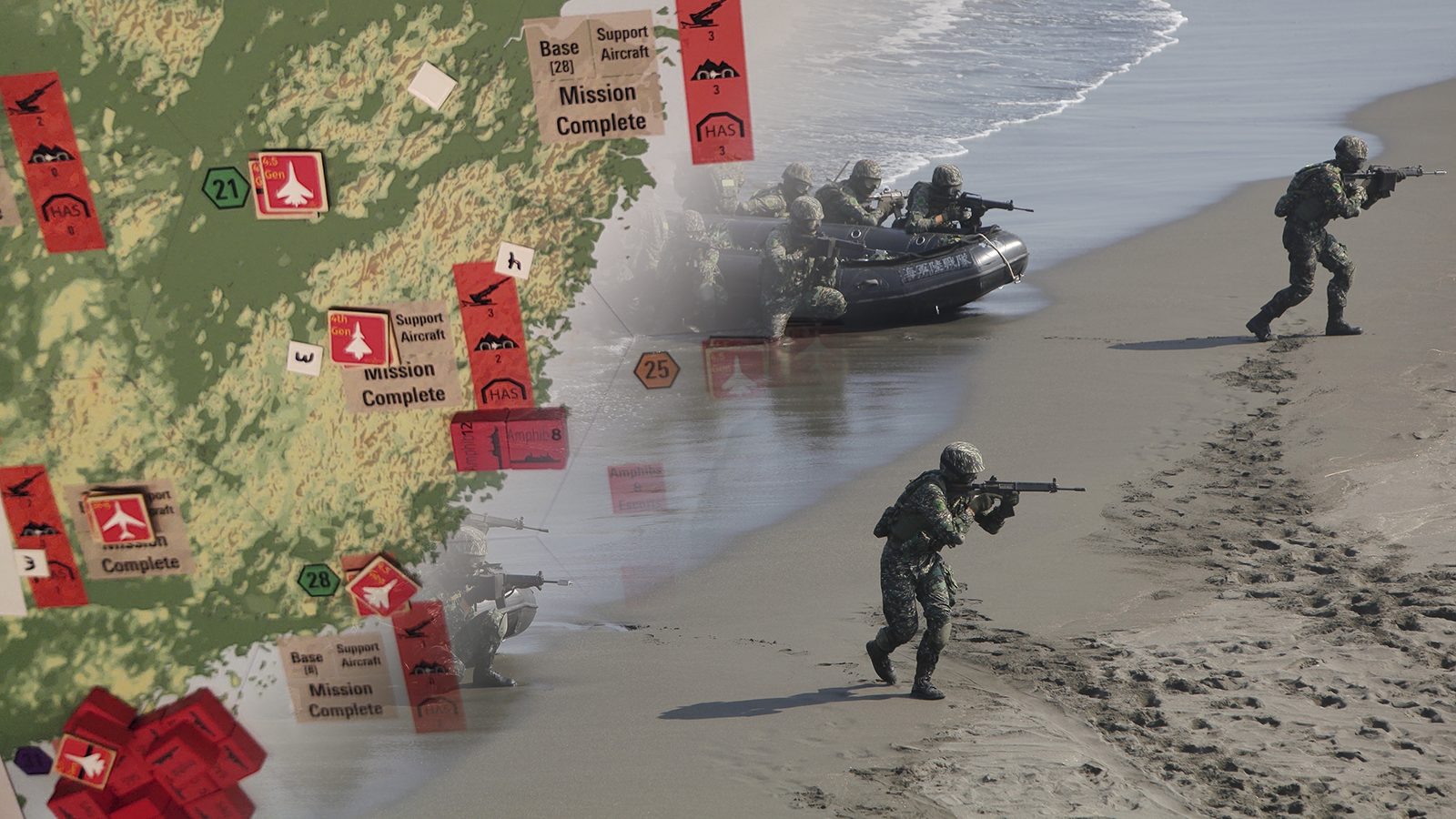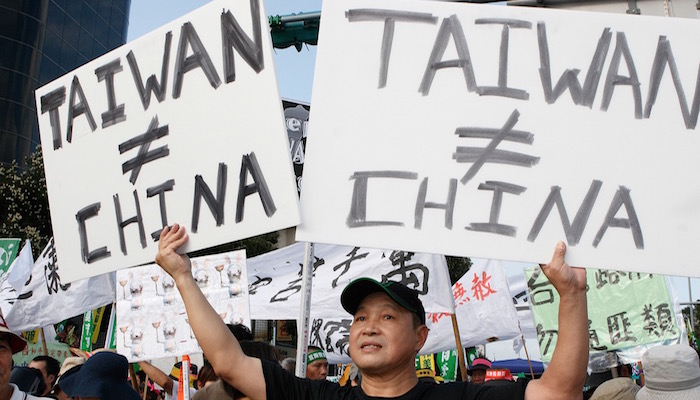According to a new survey by academics, just over half of mainland Chinese support a full-scale war to take control of Taiwan, a rare peek into popular opinion as Beijing takes an increasingly belligerent approach towards the island.
The study of 1,824 respondents indicated mixed public sentiments, with 55% in favour of “launching a unification war to completely retake Taiwan,” a third opposed, and the remaining unclear.
On Monday, political scientist Adam Y. Liu of the National University of Singapore and Associate Professor of Political Science of NYU Shanghai Xiaojun Li, published their research in the Journal of Contemporary China.
Even while authoritarian leaders are not elected in competitive elections, they have incentives to ensure that their policies align with popular sentiment in order to avoid an internal backlash, the authors noted.
“This is especially true for China, where nationalism serves as a key pillar of regime legitimacy, particularly on issues of sovereignty and territorial integrity,” the authors wrote.
Analysts believe the government may employ “sophisticated means” to alter public opinion, potentially soothing more radical voices.
Nationwide survey
The nationwide survey was performed in late 2020 and early 2021, and respondents were asked a series of questions concerning their sentiments towards Taiwan and their preferred options as of now.
Aside from the 55% who supported a full-fledged war, only 1% supported the most extreme choice of not attempting other options first.
Other options aimed at coercing Taiwan into accepting to unification received widespread support. These included “initiating limited military campaigns on the outskirts of Taiwan” (58%), “using economic sanctions” (57%), and “maintaining the status quo to increase economic and military power” (55%).
Given the high sensitivity of the subject, it is perhaps surprising that 22% of respondents stated they were happy with the two sides maintaining different political systems “with unification not necessarily being the end game,” while 71% said this was undesirable.
“This basically amounts to agreeing to de facto Taiwan independence, a term we refrained from using to ensure survey feasibility in the Chinese context and to avoid inducing social desirability bias,” the authors said, addressing the political taboos surrounding this issue on the mainland.
“As a result, the estimated support for this policy option may only be the lower bound.” Regardless, this statistic calls into question the widely held belief that “regaining Taiwan is the collective will of almost everyone in mainland China.”
The study was conducted through an online opt-in panel, making it more representative of internet users’ opinions than the overall population.
High level on nationalism
Statistical sampling was employed to guarantee that the panel’s demographic make-up resembled official data, but those who participated were better educated than the general population, with the majority holding college degrees. The researchers also attempted to assess respondents’ level of nationalism by asking five questions about their sense of national pride and belonging.
They came to the conclusion that a higher level of nationalism, combined with social pressure, created a “amplifying effect” that pushed people to favour more radical solutions while pressuring more moderate voices to conform.
However, they discovered that the appeal of aggressive choices was tempered by concerns about the economic, human, and reputational costs of a forceful takeover, as well as the possibility of US intervention.
Although previous research has suggested that younger Chinese are more nationalistic and hawkish, this poll found that older respondents preferred more forceful policy options such as full-scale war or military coercion.
“Perhaps the older Chinese have now become more impatient and are more willing to see the Taiwan issue resolved, presumably during their lifetime, one way or another, rather than wait indefinitely,” the authors noted.
Taiwan and China-US rivalry
The survey’s release comes at a time when tensions over the Taiwan Strait have increasingly become a critical stage in China and the United States’ acrimonious rivalry.
“For various reasons, such as the more recalcitrant Democratic Progressive Party government in Taiwan, China-US rivalry, and President Xi Jinping’s own ambition,” added Liu.
However, recent signals, such as a recent speech by the Communist Party’s fourth-ranking official Wang Huning emphasising the importance of cross-strait ties, indicate that Beijing is “trying to walk back from [its] tough rhetoric,” according to Liu.
“[Beijing] shall not feel compelled to take a tougher stance on Taipei, as milder policy options are also acceptable in the eyes of the Chinese public,” he said.
According to Liu, the study could also show that armed unification is not Beijing’s only option, therefore the US “should not design its China policies as if the reunification clock is truly ticking.”
Taiwan a renegade province
Beijing considers Taiwan to be a renegade province that must be rejoined with the mainland – by force if necessary – and has progressively increased military pressure on the self-ruled island.
When then-US House Speaker Nancy Pelosi visited Taiwan in August, Beijing staged a series of extraordinary military drills that virtually blockaded the island. A meeting last month in California between Taiwanese President Tsai Ing-wen and Pelosi’s successor Kevin McCarthy spurred yet another round of large-scale drills.
This more confrontational approach has also raised concerns that Beijing may try to accelerate its schedule for reunification, with former US Indo-Pacific Command chief Philip Davidson warning in 2021 that it may move “within the next six years.”
The United States, like most other countries, does not officially recognize Taiwan as a sovereign state, but it opposes any attempt to change the status quo through force and is legally obligated to assist the island in defending itself.
One China principal
According to a public poll done by the Global Taiwan Institute, a Washington-based non-profit, a majority of Americans, particularly Democrats, support the US safeguarding Taiwan.
Beijing is particularly concerned as more countries claim that Taiwan’s future as a key producer of semiconductors is a “global” one, despite Taiwan’s assurance that the topic is solely internal.
The International Crisis Group’s Amanda Hsiao, a senior China analyst, said there appeared to be “growing pessimism” about the odds of a peaceful resolution and cautioned that strong levels of nationalism in China could reduce the range of potentially acceptable solutions.
“What Chinese elites perceive to be the politically correct parameters of the Taiwan discussion can be shaped by public opinion,” she noted.
She did, however, say that China had “sophisticated means” of manipulating public opinion in its favour, adding that “if policymakers wanted to tamp down on public calls for more extreme responses to Taiwan in order to give themselves more political space to manoeuvre, they can.”
According to Sung Wen-Ti, a political scientist at Australian National University, the Chinese people has minimal influence over policy making, particularly on sensitive matters such as Taiwan, due to the party’s and Xi’s focus on the core leadership.
“This could imply that Beijing’s continued preference for peaceful unification has staying power despite shifts in public opinion,” he said.









